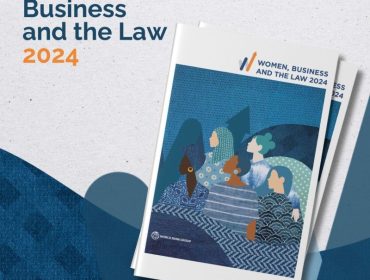
Advancing Financial Inclusion Metrics: Shifting from access to economic empowerment
January 18th, 2018 – Financial inclusion is at a turning point. Due to advances in technology, the unprecedented advent of transactional and behavioral big data and greater multistakeholder collaboration, there is a realistic opportunity to reach the financially excluded – estimated to be 2 billion – and the many more that are underserved.
A key ingredient to achieving this ambitious goal will be an improved system for measuring the progress of financial inclusion, and the benefits that accompany this progress. Developing a more nuanced understanding of the customer is, thus, required for widespread adoption and use of digital finance in emerging economies, unleashing an estimated $3.7 trillion in GDP by 2025.
Within the Future of Financial and Monetary Systems Initiative’s framework, the Financial Inclusion project, developed in collaboration with Tata Consultancy Services and several industry partners, an innovative framework to better understand how data can be further employed to measure access and usage of financial services. The framework consists of 55 new metrics that will help measure the access, usage and impact of financial services in so-called “unbanked markets”. The metrics will allow organizations to develop business strategies and public policies to lift people out of poverty by “financially including” them as well as explore new business opportunities, as they allow a more granular analysis of available data and a higher focus on the consumer.
Complementing this work, the group has also examined methods for measuring the impact of financial inclusion on people’s livelihoods, alongside exploring opportunities for private- and public-sector actors to apply the findings.
The initiative’s partners include financial providers, consulting companies, foundations, and consumer goods companies, namely, Accion, Alliance for Financial Inclusion, BBVA, Bill and Melinda Gates Foundation, Center for Financial Services Innovation, Credit Suisse, International Finance Corporation, Insight2Impact, InterMedia, Mastercard, Mercy Corps, MTN Group, PayPal, Quona Capital, SWIFT, Tata Consultancy Services, Telenor Group, Unilever, UNSGSA, and the World Bank.
Written by WORLD ECONOMIC FORUM
Related Post
Digital Entrepreneurship in Africa
Africa’s progress in entrepreneurship, digital innovation, and its young population lays a solid foundation for achieving the United N...
Women, Business and the Law 2024:...
Women, Business and the Law 2024 This year’s report, the 10th in the series, finds that women worldwide continue to have fewer legal r...
European Commission launched AI innovation package...
On 24 January, the Commission has launched a package of measures to support European startups and SMEs in the development of trustworthy Art...




